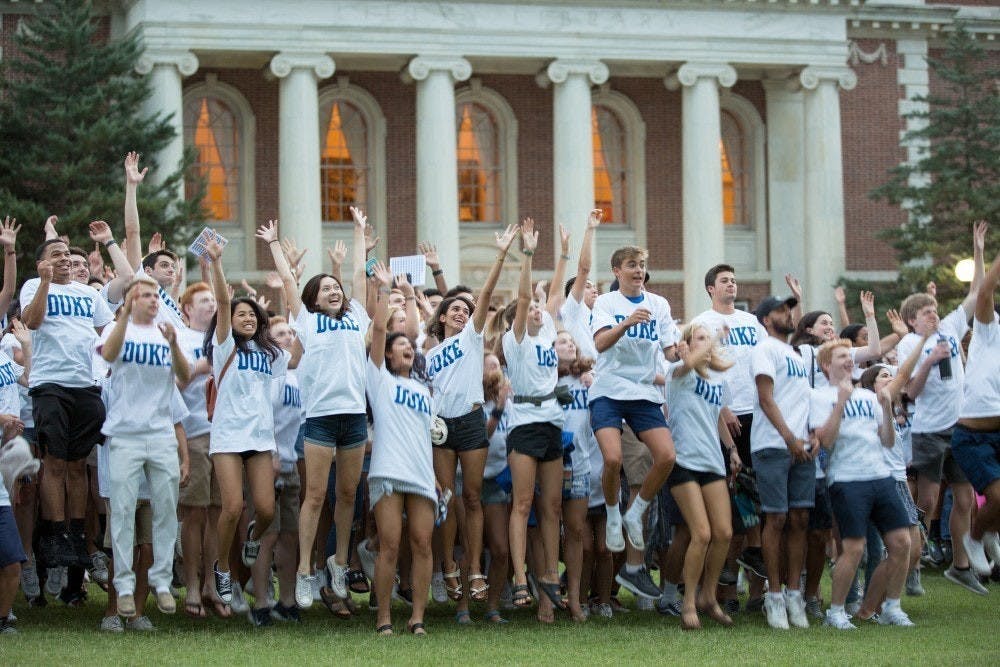During at least one point, many students have found life at Duke to be disillusioning, overwhelming, and intimidating at times—feelings that can be exacerbated for low-income or first-generation students.
A new student organization on campus aims to help with that. Launched this fall, DukeLIFE seeks to provide resources for low-income, first-generation students of all years. The club also plans to offer an open, welcoming community for these students, who often feel they have to suppress or hide their identity on Duke’s campus.
“I think that the biggest problem is that people… don't know what [being first-generation, low-income] means or don't know exactly how that is tangibly experienced by students here,” said Elle Winfield, senior and vice president of DukeLIFE. “For instance, it's not fully appreciated just how much it can affect your life and because of that, it's not really acknowledged as something that should be celebrated as a remarkable achievement that you got to this place in college.”
Through DukeLIFE, Winfield wants to make Duke's administration aware of low-income/first-generation students' needs and what's required to fulfill them. First-generation students make up 12 percent of Duke's class of 2021.
DukeLIFE aims to bolster faculty and alumni relationships, improve mentorships between students and push for policies that prioritize the needs of first-generation, low-income students.
Winfield noted that for the past few decades, Duke has been making a big push to admit more low-income, first-generation students. However, the University doesn't do enough to actually help those students once they're here, she argued.
“I think it’s really about making [Duke] much more conscious to the fact that we're here and the things that we need them to do to step up and be the university that they told us that they were going to be when we accepted our decision to come here,” she said.
DukeLIFE is currently working on building a structure for students to receive help whenever they need it. For example, it is creating a senior mentorship panel for younger first-generation, low-income students that helps answer questions and find internships and jobs.
DukeLIFE is also hoping to organize a plethora of other advising and community-building events, including discussions between low-income, first-generation Duke graduate and undergraduate students, large nationwide conferences and coffee chats at the Von der Heyden Pavilion.
Such projects give first-generation, low-income students the often-missed opportunity to build connections and reach out for guidance and support.
“A lot of my connections with [first-generation, low-income] students have been, I've made a comment about being frustrated by costs at Duke and someone has been like ‘oh me too’ and you get those connections by accident,” Winfield mentioned. “[DukeLIFE] is focused on making sure that those connections are very intentional.”
DukeLIFE wants to mold Duke’s policies to better look after the needs of its first-generation, low-income students.
Some of the projects it has worked on is eliminating the application cost for low-income students applying to Duke and having Duke cover application/testing fees of medical and law schools for low-income undergraduates.
It also hopes to increase access to existing resources for low-income, first-generation students at Duke, as well as to make professors more aware of the potential support that those students may need but feel too nervous to ask for.
“I feel like we really represent the mouthpiece of [first-generation, low-income] students,” said Winfield. “If you are ever worried or frustrated about your identity as first-generation or low-income…we want to make sure that there's a community there that you can [reach out] to.”
Get The Chronicle straight to your inbox
Sign up for our weekly newsletter. Cancel at any time.

Mona Tong is a Trinity senior and director of diversity, equity and inclusion analytics for The Chronicle's 117th volume. She was previously news editor for Volume 116.

